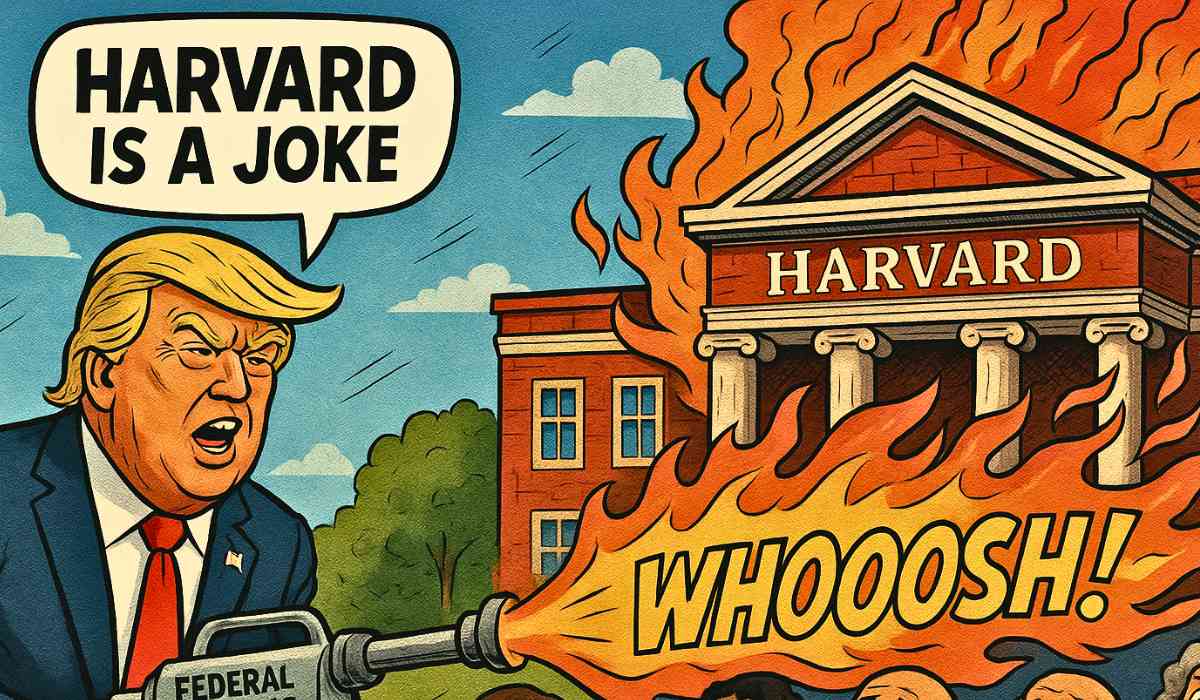US President Donald Trump recently launched a sharp criticism against Harvard University, calling it a "joke" and questioning its status as a leading educational institution. This latest attack comes amid a tense standoff between the Trump administration and Harvard over federal funding and university policies.

Trump's criticism was posted on his social media platform, Truth Social, where he declared that Harvard "can no longer be considered even a decent place of learning" and should be removed from any list of the world's great universities. He accused Harvard of teaching "hate and stupidity" and demanded that it stop receiving federal funds. Trump also took aim at Harvard's hiring choices, singling out former mayors Bill de Blasio and Lori Lightfoot, whom Harvard hired as teachers despite their controversial tenures in New York City and Chicago. He labeled them as "the worst and most incompetent mayors" and accused the university of hiring mostly "woke, radical left" staff who teach failure rather than success.
This verbal assault is part of a broader conflict between the Trump administration and elite universities, which the administration accuses of promoting anti-American and antisemitic sentiments, especially in relation to protests on campuses following the conflict in Gaza. The administration froze over $2.2 billion in federal funding to Harvard, citing failures to protect Jewish students from discrimination during pro-Palestinian protests and demanding changes to Harvard’s governance, admissions, and academic programs. Harvard refused to comply, arguing that government interference threatens academic freedom and violates constitutional rights.

Harvard’s president, Alan Garber, responded firmly, stating that no government should dictate what private universities teach or whom they admit. Harvard has even filed a federal lawsuit against the administration, accusing it of using funding as a weapon to impose a political agenda and undermine academic independence. This legal battle raises important questions about the limits of federal power over private educational institutions and the future of university autonomy in the US.
The situation has sparked debate across the country. Supporters of Harvard’s stance see it as a defense of academic freedom and diversity, while critics argue that universities must be held accountable for campus climate and political bias. The Trump administration’s approach reflects a wider political struggle over the role of higher education in society and the influence of ideological perspectives on campuses.

In summary, the clash between Donald Trump and Harvard University highlights a significant moment in US education and politics. It is not just about funding or protests but about the fundamental question of who controls what is taught and how universities operate. The outcome of this conflict could reshape the relationship between the federal government and higher education institutions for years to come, affecting students, faculty, and the broader society alike.
This ongoing dispute invites all sides to consider the balance between protecting free inquiry and ensuring accountability, a challenge that remains central to the mission of universities everywhere.
With inputs from agencies
Image Source: Multiple agencies
© Copyright 2025. All Rights Reserved Powered by Vygr Media.

























